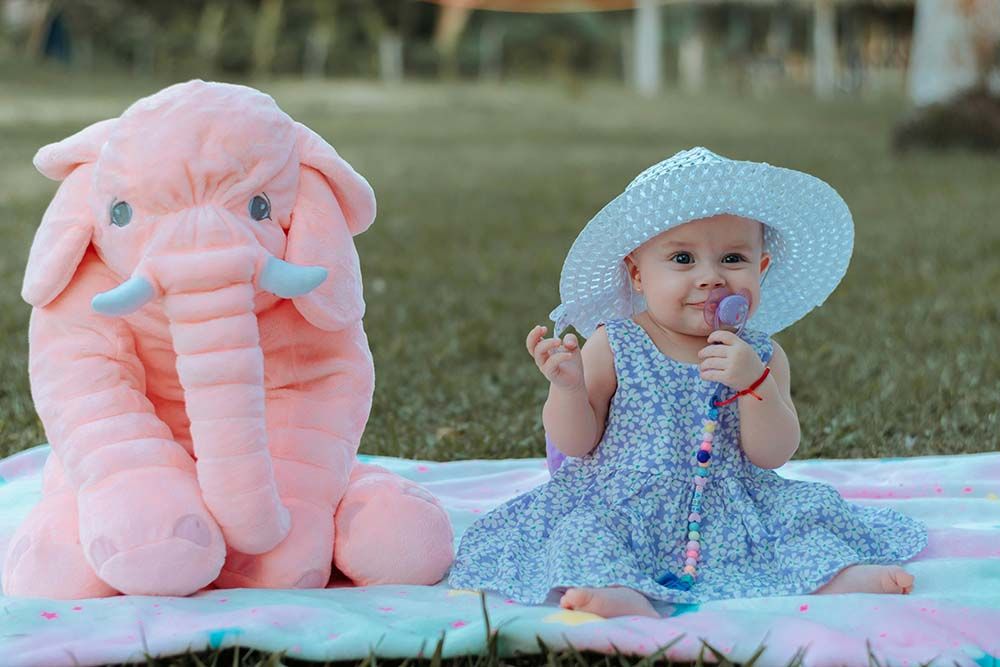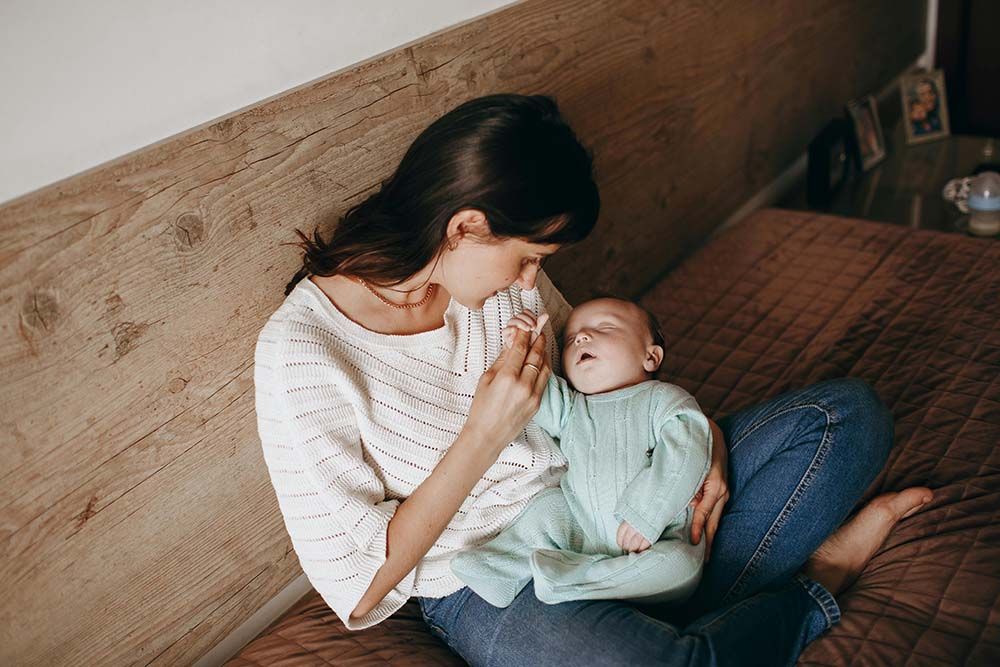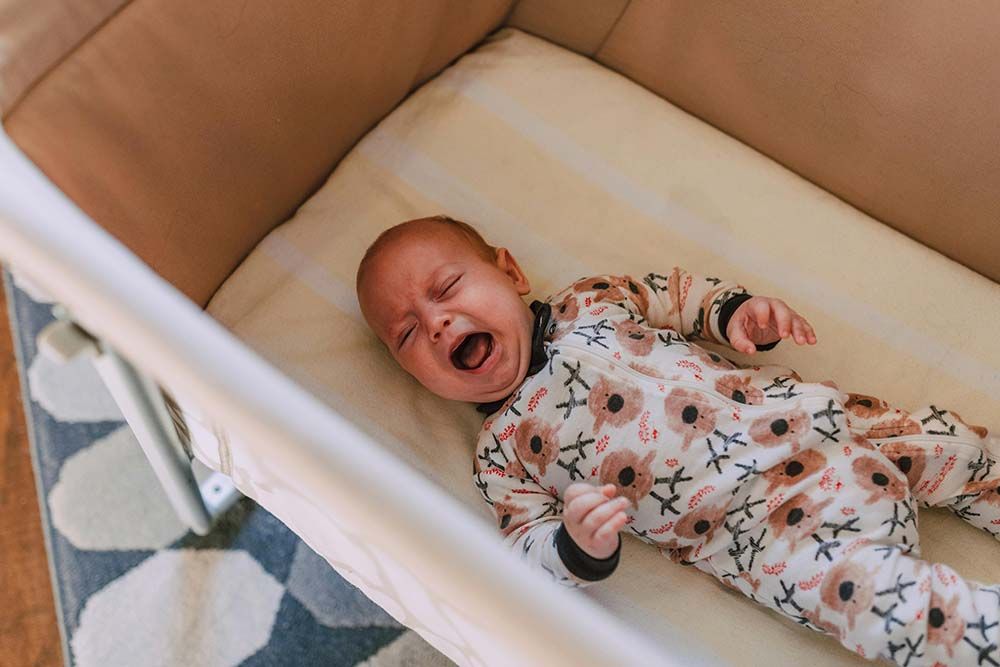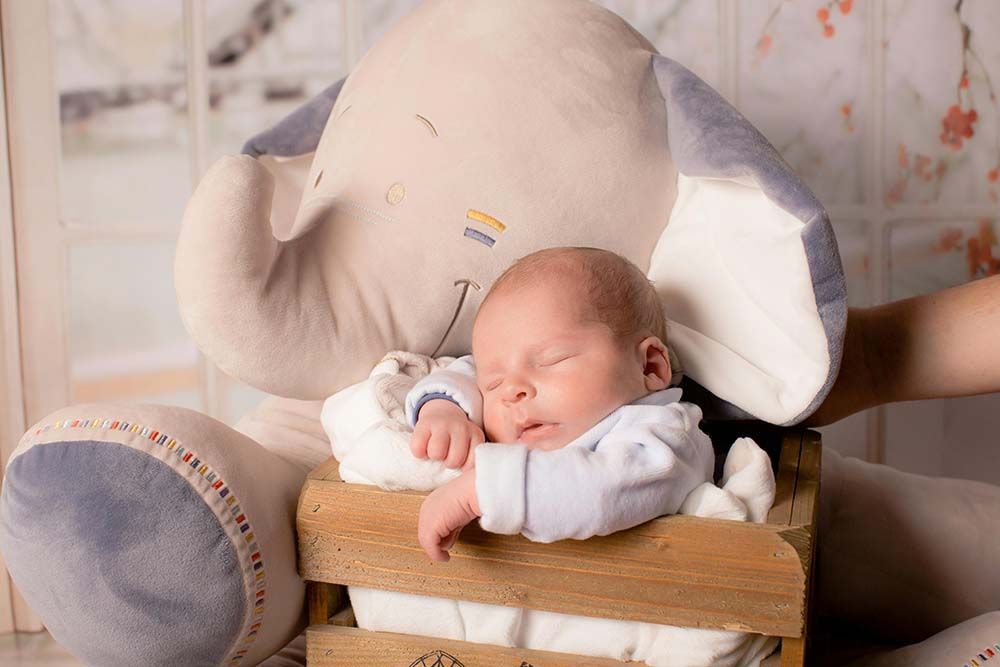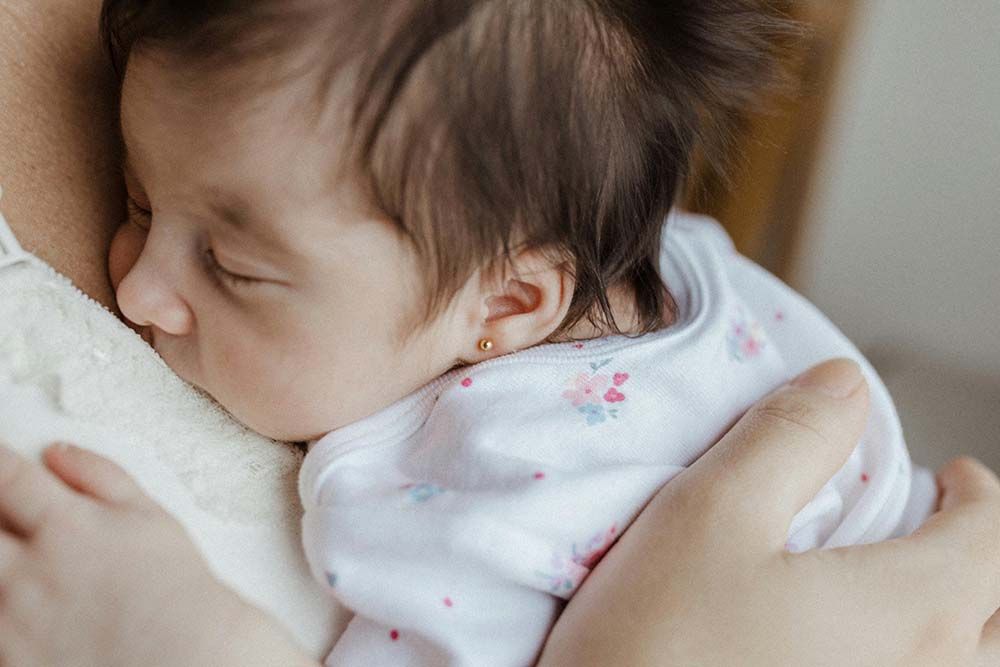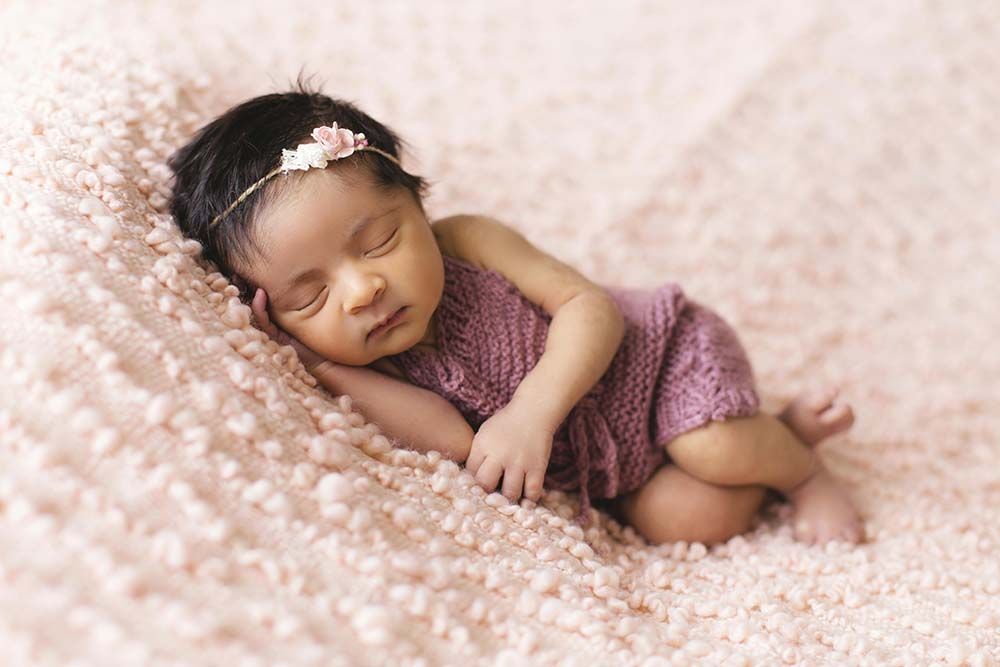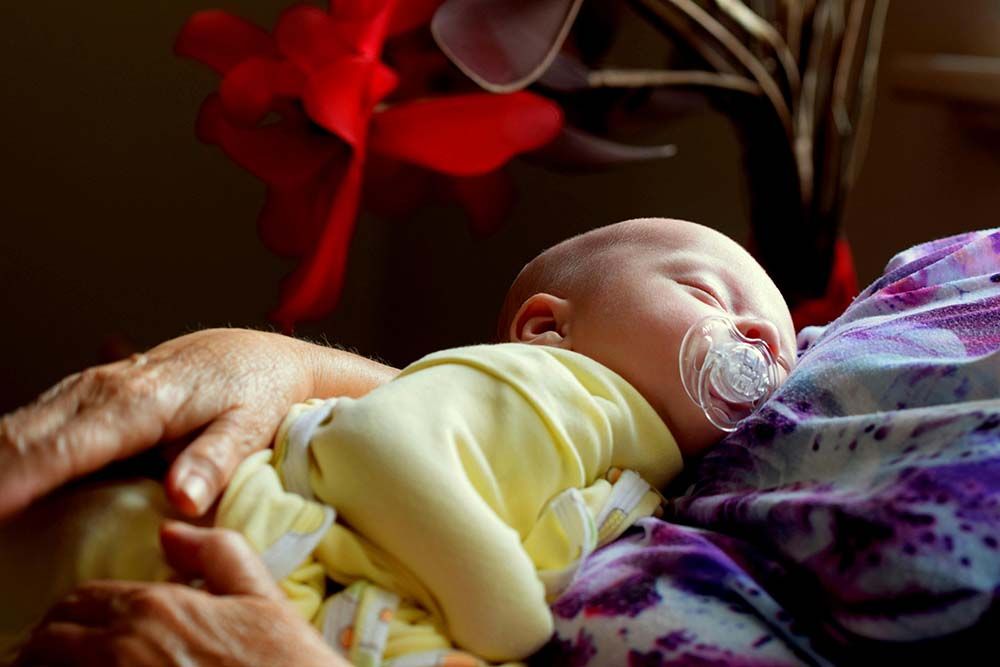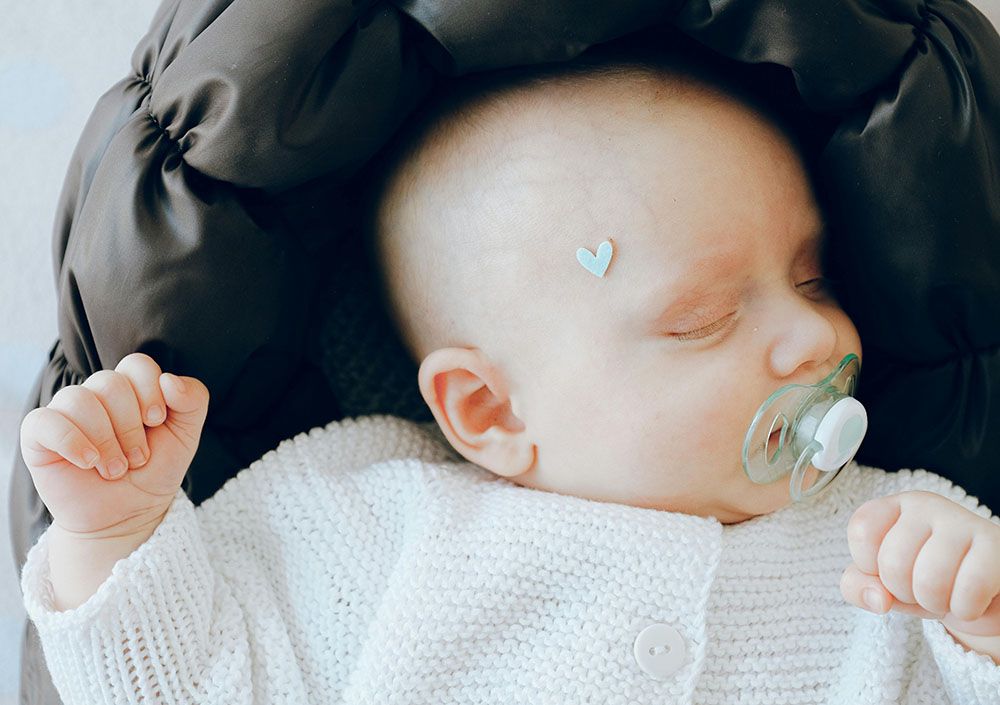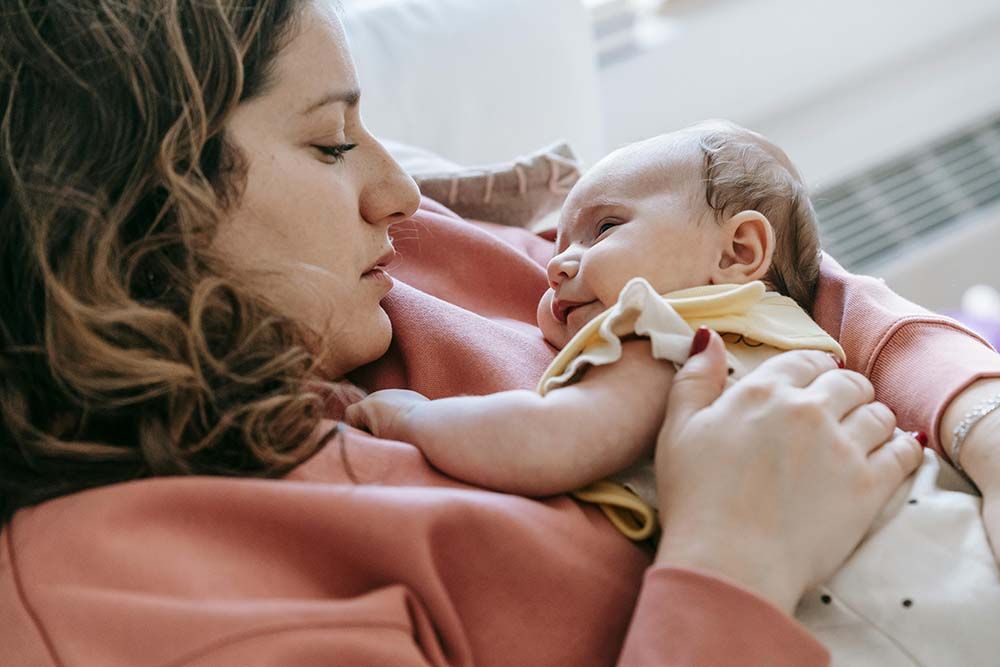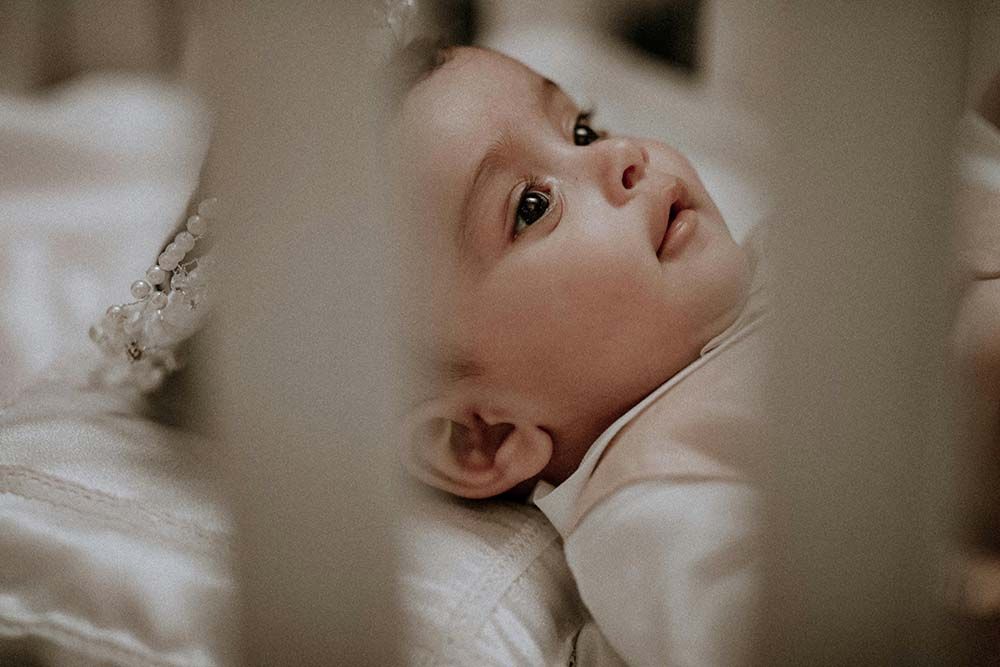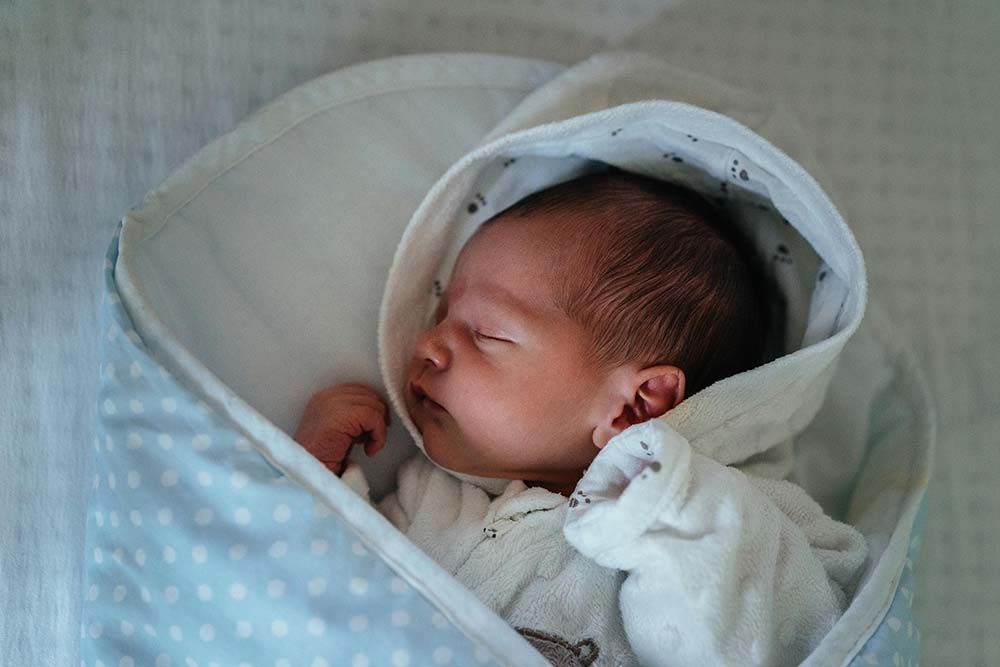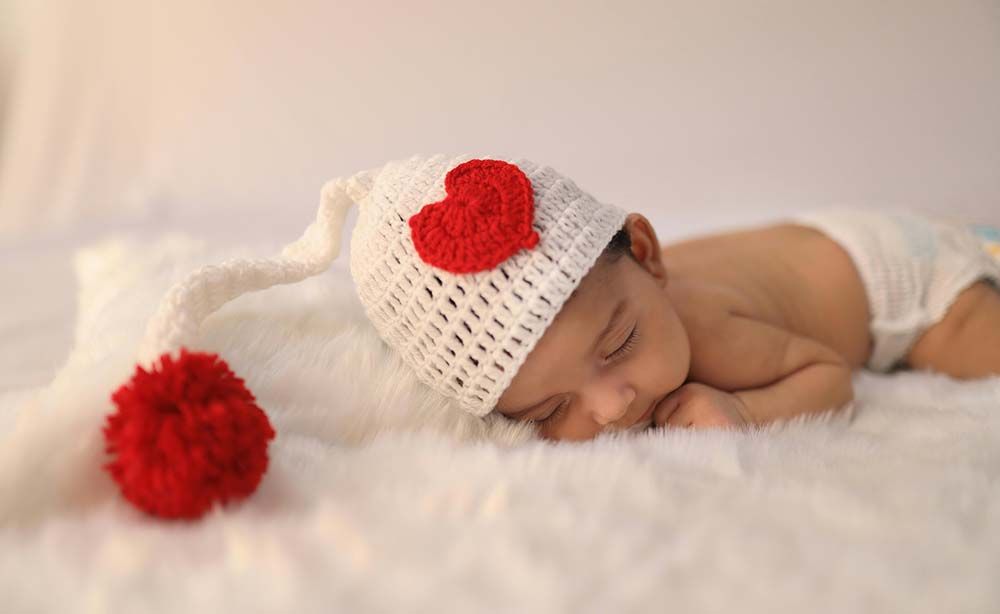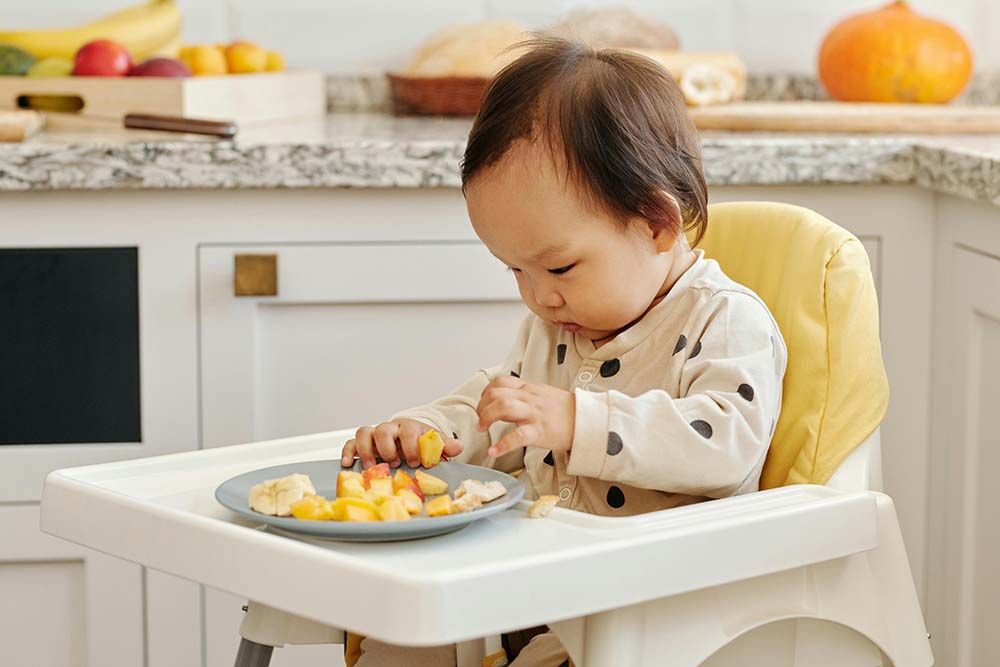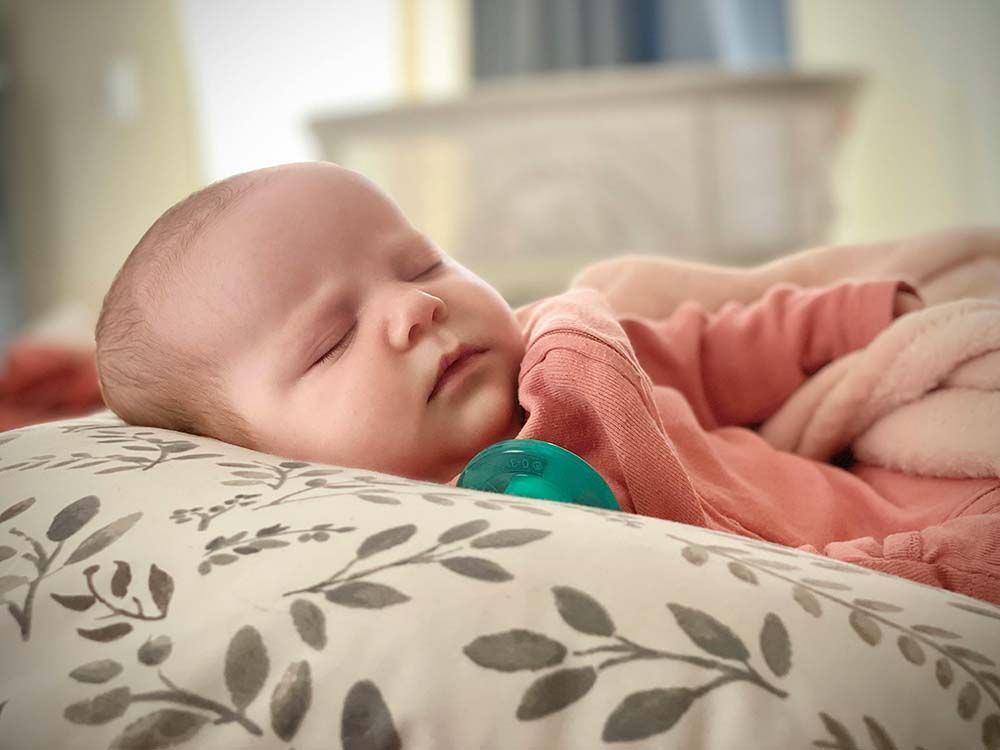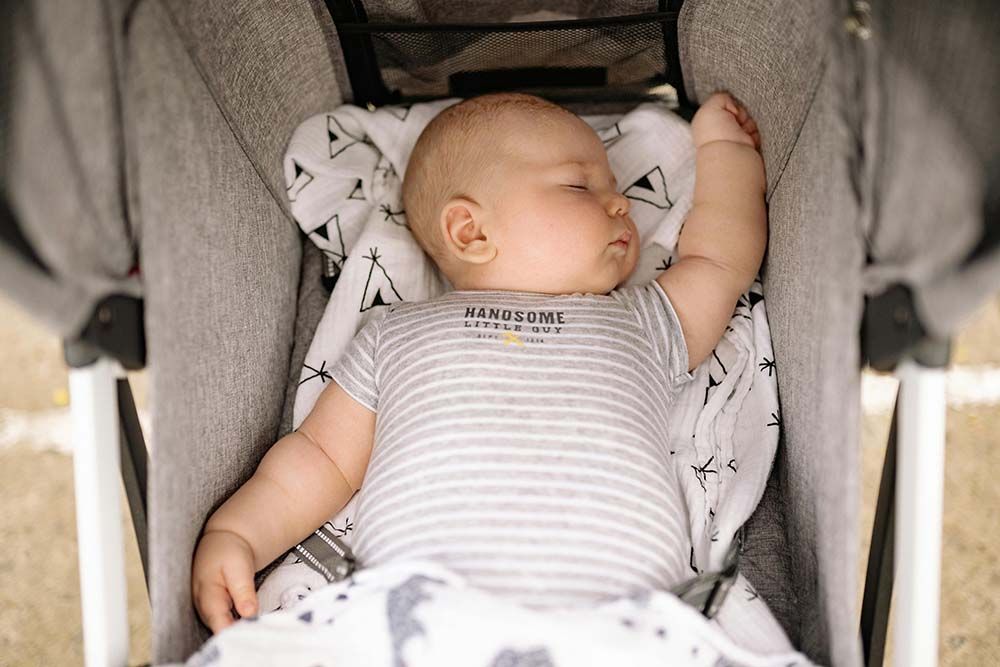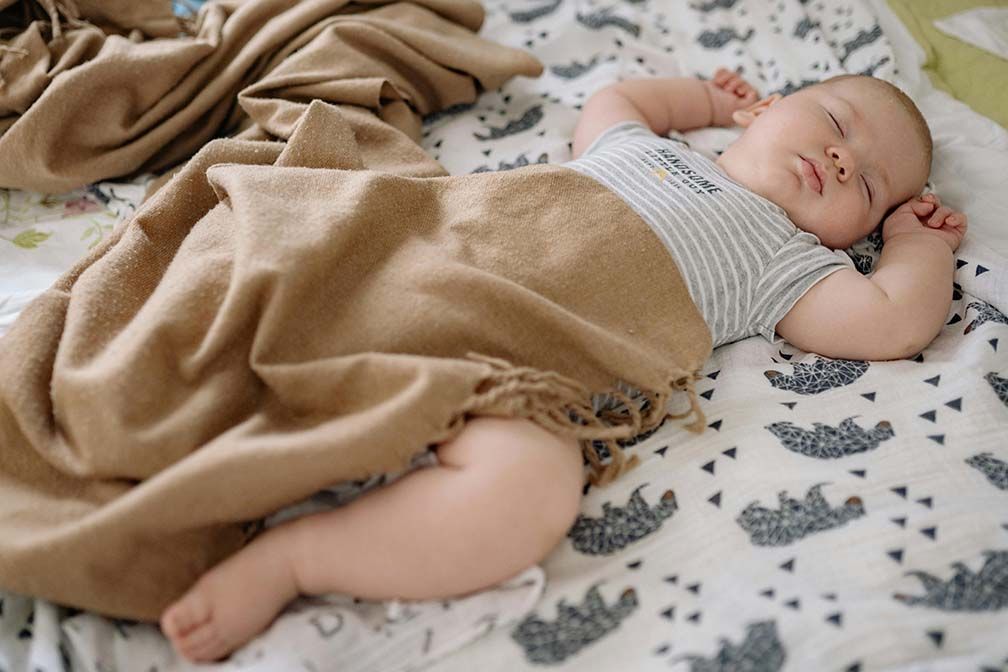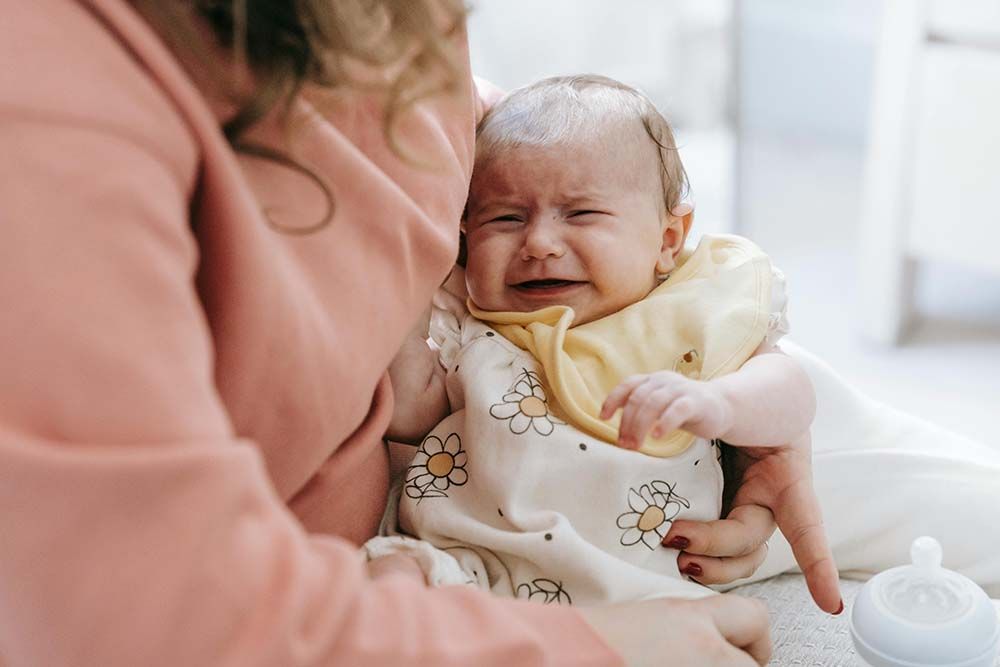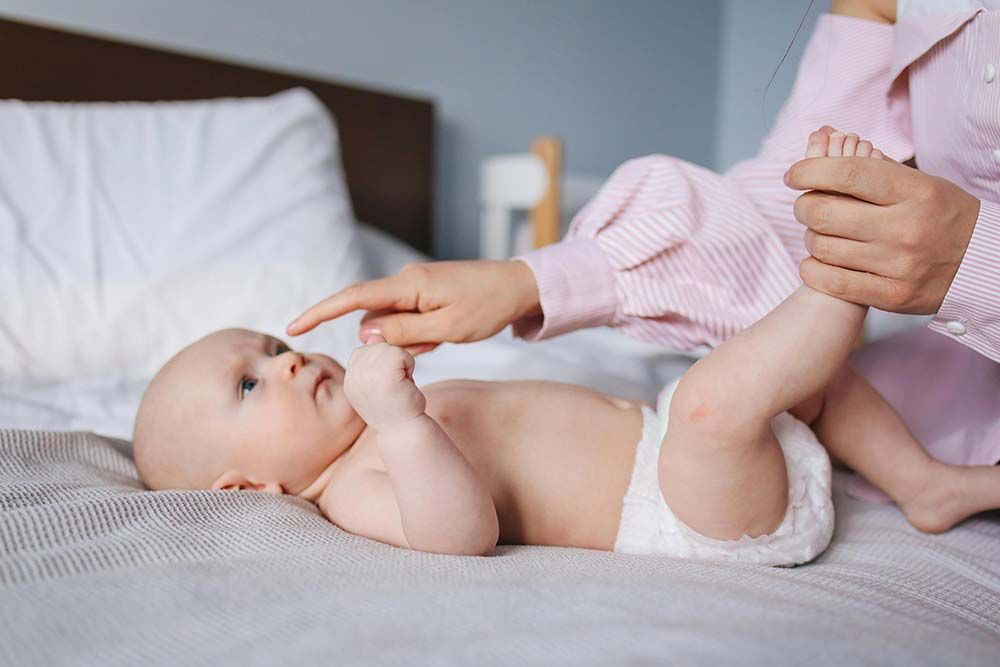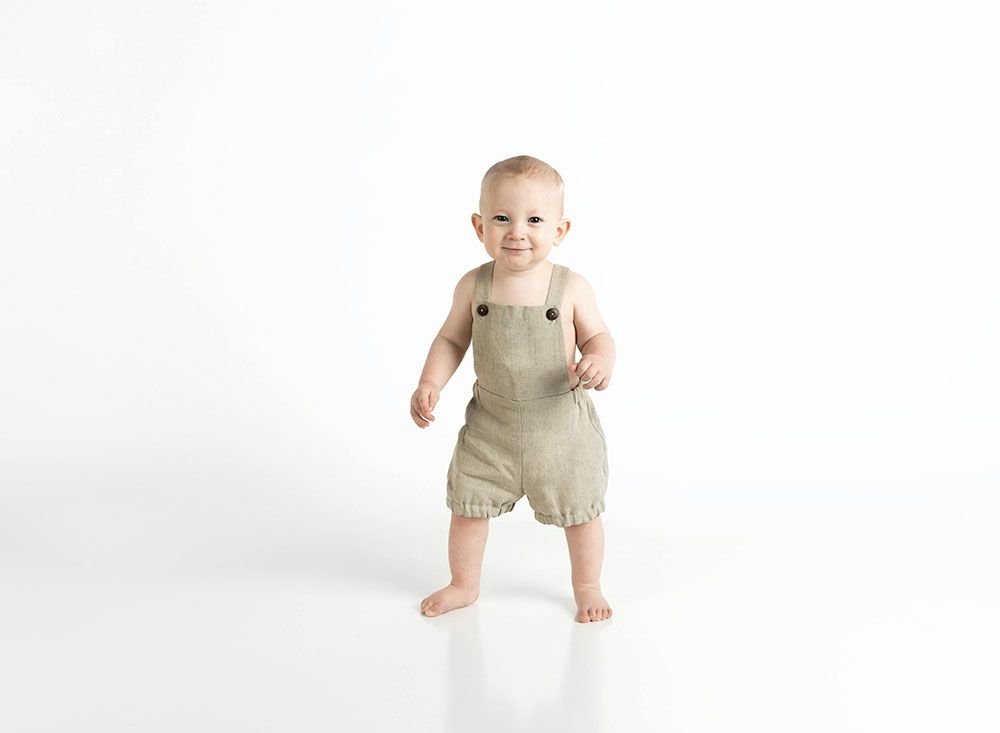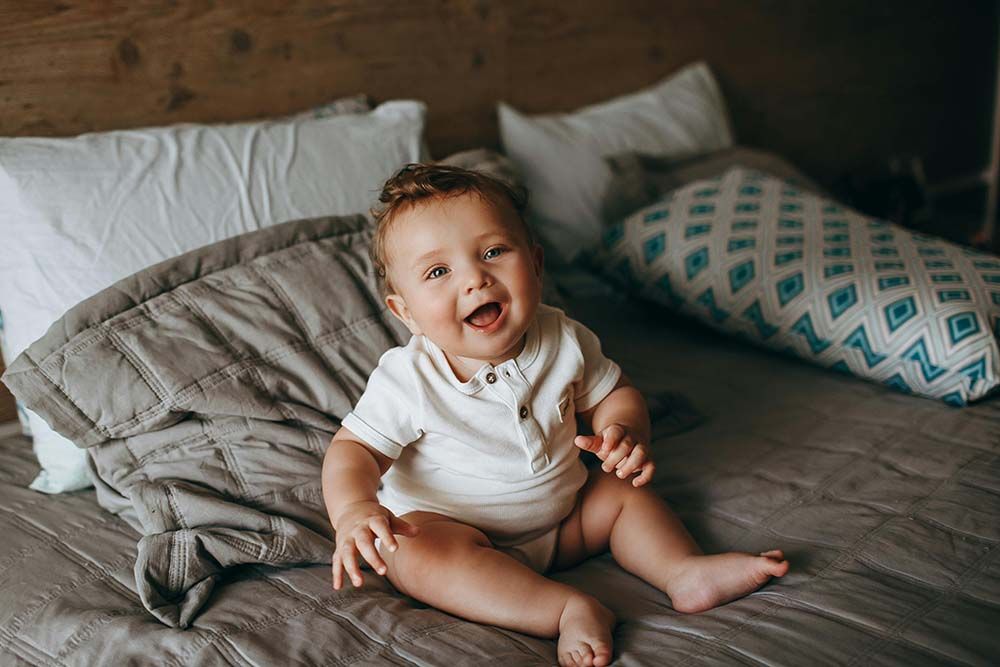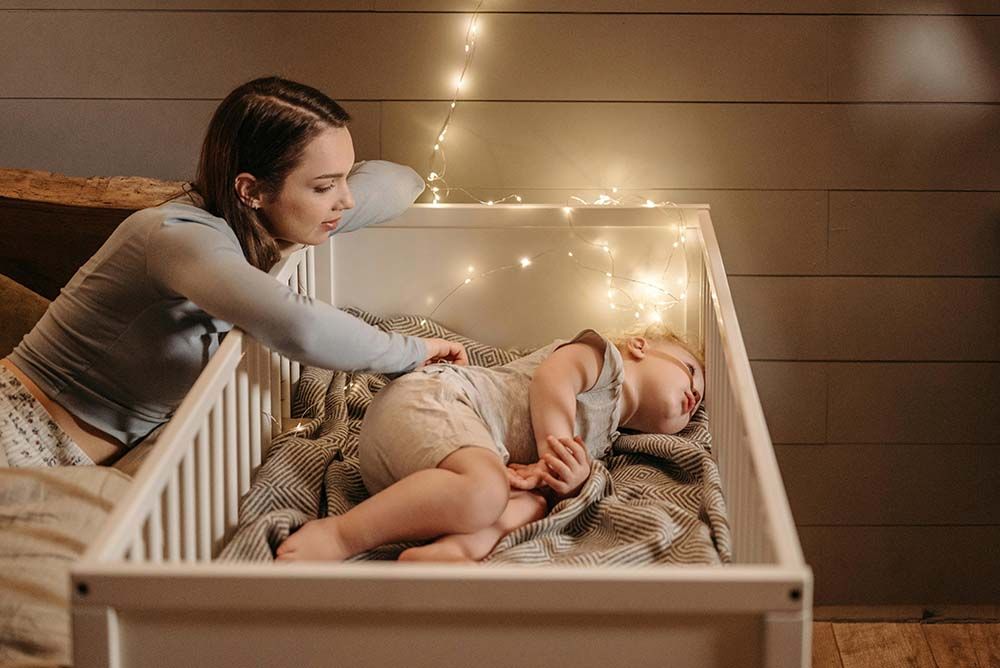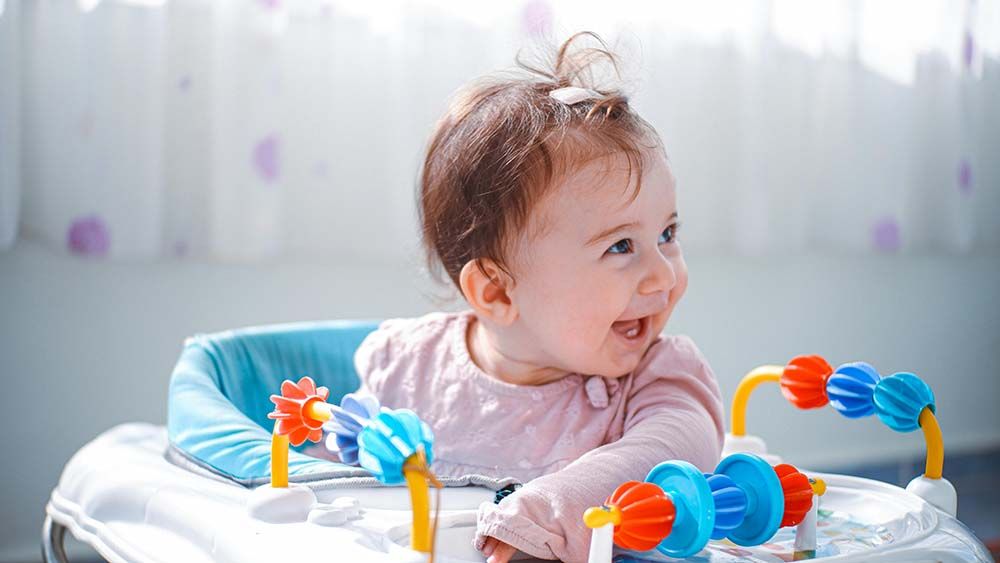

When a baby is given birth, the whole family will full of the atmosphere of happiness and pleasure. At that time, they may expect when do babies laugh for the first time, especially for moms. They will feel great happy when seeing their baby’s smiling faces. Besides, baby’s laughter is not only good for creating an intimate and harmonious family atmosphere, but also is a symbol of progressing in developing social interaction for babies. So, when do babies laugh for the first time? Welcome to read more to find your answer.
IN THIS ARTICLE
What are the Developmental Stages of Babies’ laughing?
When do Babies Laugh for the First Time?
Why is Babies’ Laughter so Important?
What if Your Baby Doesn’t Laugh?
What are the Developmental Stages of Babies’ laughing?
The development of a baby's laughter is usually divided into several major stages, each of which reflects the gradual development of your baby's brain, emotional and social abilities. Here are the different stages of your baby's laughter development:
1. Unconscious smile (0-6 weeks after birth)
In the first few weeks after birth, your baby's smile is usually unconscious and mainly a physical reaction. During this stage, your baby may occasionally make sounds or expressions similar to smiles, but these are mostly spontaneous and reflexive, rather than in response to specific stimuli.
2. Social smile (2-3 months)
When your baby is about 2-3 months old, your baby will begin to smile socially. They begin to be able to distinguish between familiar people and strangers' faces. Babies will smile when they see the faces of familiar caregivers (such as mom, dad). At this stage, smiling is a response to specific social stimuli, indicating that babies are beginning to develop cognition of people and environment around them. This is one of the milestones of baby's emotional and social development.
3. The beginning of laughter (4-6 months)
As the baby's emotional and social abilities gradually increase, the baby begins to make real laughter at this stage. Laughter at this time is usually a response to external stimuli (such as playing, teasing, kissing, hide-and-seek, etc.), and will have different expressions in different situations. Babies begin to understand and enjoy the fun of interacting with people at this stage. Laughter is also a way for babies to express joy and pleasant emotions.
4. Conscious interactive laughter (6-9 months)
During the period of 6 to 9 months, babies' laughter becomes more purposeful and conscious. They begin to establish deeper emotional connections with their parents or others through laughter, and respond to the behavior and expressions of others through laughter. At this stage, babies will also show laughter by imitating the actions and facial expressions of their parents or others, such as making faces, making sounds, etc.
5. Emotional laughter (9-12 months)
As they approach one year old, babies' laughter can express more complex emotions, such as happiness, pleasure, curiosity, etc. Laughter at this stage is usually accompanied by babies' increased interest in the things around them. They like to participate in games, toys and interact with others. Laughter is becoming more and more common and has become an important way for them to interact with the world.
6. Social and situational laughter (12 months and beyond)
As language skills begin to develop and cognitive abilities improve, babies' laughter will be combined with more complex emotions. When your baby is about a year old, laughter becomes more situational, and your baby begins to express laughter in specific situations. For example, they may laugh happily when someone does something funny or tells a joke, or when they discover that they have the ability to control the reactions of others. At this stage, your baby's laughter may also be self-aware, and often reflects more on their social skills and emotional expression.
When do Babies Laugh for the First Time?
Babies laugh for the first time is a gradual process. It is evolved from giggles and smiles. At around 4 months, you may hear your baby laugh out loud for the first time. Unlike smiles, laughter is a direct reaction to the interesting external stimuli. It is a positive response to the surroundings, which becomes more conscious and emotional. With the rapid development, babies’ laughter will be more variable.
Laughter is an important sign of a baby's emotional development. It shows that the baby is beginning to have more emotional expression and social interaction abilities. It also means that the baby is enjoying and participating in communication and intimate interactions with others.
However, every baby develops at a different pace, so some may start laughing earlier or later in this time range, and this is normal.
Why is Babies’ Laughter so Important?
1. Emotional development and expression
Babies express their emotions through laughter, which is one of their early ways of expressing emotions. Laughter helps babies recognize and understand positive emotions such as happiness and excitement, and also helps them gradually learn how to share their feelings with others. Laughter is a key way for babies to establish emotional connections with their parents or caregivers, which helps to enhance attachment and build a sense of security.
2. Promote social interaction
Laughter is part of social interaction. Babies respond to others or react to the surrounding environment through laughter, and this interaction promotes the development of social skills. Social interaction is the core of human mental health and development. Babies establish connections with others, feel love and attention through laughter, and thus form a secure attachment relationship.
3. Cognitive and language development
Sometimes, babies laugh in response to novel things, and this novelty stimulates their brain development. Babies gradually understand the rules, properties and interpersonal relationships of things by perceiving others’ reaction. Laughter is often accompanied by language learning. Babies gradually learn the tone and rhythm of language by imitating the laughter or words of others.
4. Impact on physical health
Laughter also has a positive effect on the baby's physical health. Studies have shown that laughter can promote physical relaxation, reduce the secretion of stress hormones, and release "happy hormones" such as endorphins, all of which help baby keep stable mood and healthy mental. In addition, laughter can strengthen the immune system and help the baby better cope with external pressure.
5. Harmony of family atmosphere
The baby's laughter is a reflection of the family's happiness and a symbol of a harmonious family atmosphere. When the baby laughs, not only the baby's emotions are satisfied, but also the parents or caregivers around him feel joy and satisfaction, and enhance the connection and trust between parents and children. Laughter can convey warmth, relieve tension, and promote emotional connection between family members.
6. Encourage exploration and learning
The baby's laughter also reflects their curiosity and spirit of exploration towards the world. When they see new things or experience new feelings, laughter is a natural feedback that shows their positive response to the outside world. Laughter can encourage babies to explore and learn more, and enhance their self-confidence and courage.
How to Make Babies Laugh?
Making babies laugh not only enhances parent-child relationships, but also promotes their emotional and social development. Here are some effective ways:
1. Facial expressions and voice
Exaggerated facial expressions: Making various exaggerated facial expressions, such as opening your mouth wide, glaring your eyes wide, or frowning, can attract your baby's attention and trigger laughter.
Interesting sounds: Speaking in different tones and speed, such as saying "hello" in high tones or imitating animal calls in low tones, can make babies feel interesting.
2. Physical contact
Gentle caress: Gently caressing the baby's belly, face, or hands, the gentle touch will make the baby feel comfortable and happy.
Scratching: Gently scratch the baby's neck, feet, or armpits, but be careful not to apply too much force to avoid discomfort.
Hug and Shake: Gently hold the baby and shake it up and down, or sway it left and right. Also, you can simulate the movements of riding a horse or plane, which will be also pretty enjoyed by babies.
3. Interactive games
Hide and Seek: Cover your face with a handkerchief or small cloth, then suddenly take it away and say "hide and seek". Babies are usually amused by this surprise.
Blowing bubbles: Blowing out colorful bubbles, babies will be very interested and often laugh out loud when trying to catch them.
Toy interaction: Use brightly colored toys or sound making toys to attract the baby's attention, such as rattles, plush toys, or music boxes.
Imitate animals: Imitate the sounds and movements of animals, such as barking dogs or meowing cats, which is usually very interesting for babies.
4. Visual stimulation
Mirror game: Let the baby look at themselves in the mirror, and they may become curious about their own image and laugh out loud.
Colorful items: Display brightly colored pictures or toys to attract babies' attention and increase fun.
5. Music and songs
Singing nursery rhymes: Sing some simple nursery rhymes or nursery rhymes, such as "Little Star", which babies usually enjoy listening to.
6. Small surprises in daily life
Sudden surprise: When the baby is not paying attention, you suddenly appear and make interesting sounds or funny movements, the baby will be usually amused by this sudden surprise.
7. Outdoor activities
Outdoor play: Take your baby outdoors and expose them to nature such as grass, sand, or water. These fresh experiences will make your baby excited and laugh out loud.
Parent child interaction: Engaging in outdoor parent-child interactive games such as chasing, hide and seek, or playing ball games can not only enhance parent-child relationships but also make babies laugh non-stop.
What if Your Baby Doesn’t Laugh?
Every baby grows at a different pace, and some babies may take longer time to start laughing. Some babies may adapt to external stimuli more slowly, and some babies are naturally quieter and less likely to laugh. Parents should be patient because each baby will grow at his own pace. Don't force your baby, otherwise it will be counterproductive.
There could be various reasons why your baby doesn't laugh. Sometimes babies may not laugh because they feel uncomfortable or unhappy. Parents should observe their baby's emotions and physical state to make corresponding adjustments in time. If your baby doesn't laugh currently, it may also be that they are not interested in the current interaction or do not feel safe and comfortable. You can try to change the way you interact.
However, if your baby still shows no response to external interactions and lacks a smile at the age of six months, and there are other signs of developmental delays (such as vision, hearing or language problems), parents may consider consulting a pediatrician or child psychologist to rule out potential health problems or developmental disorders.




